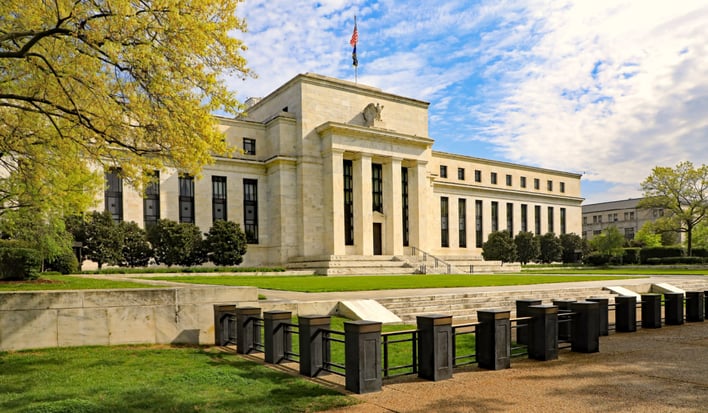Fed Remains Resilient In Inflation Fight But Questions Future Rate Increases

For over a year, the Federal Reserve has been on a war path when fighting inflation, using one of its most powerful tools – interest rate hikes. The interest rate hikes have been working as intended, causing many Americans to slow down when it came to spending, and while inflation remains too high for the Fed's liking, it has fallen steadily since the peak in June 2022. Most notably, the higher interest rates have caused housing markets across the country to stabilize as many buyers took a wait-and-see approach.
Unfortunately, interest rate hikes can also have unintended consequences, as we see today with the recent bank failures of Silicon Valley Bank and Signature Bank and the sale of Credit Suisse to UBS. These banks failed in large part because these banks held illiquid treasury bonds at interest rates set before the Fed started raising rates. The massive increase in interest rates over the last year caused these banks to be unable to get them off their books without recognizing massive losses. Once the treasury bond issues became known and the bank's customers wanted to redeem their deposits, the banks failed to meet the liquidity demands of their customers, could not return the deposits, and failed.
Before the events that unfolded over the last several weeks, the Fed seemed poised not just to continue hiking interest rates but continue at a pace that was faster than previously anticipated. That change was because the labor market was still far too hot for the Fed's liking, economic indicators were more positive than it should be and inflation seemingly wasn't falling fast enough.
The Fed now faces a much greater risk than short-term inflation, which might derail its plans for further hikes. The risk is the threat of a credit crisis that can create damaging shockwaves across the global financial system as Americans and individuals around the globe rush to pull out their deposits in banks that may not be as liquid as we once believed and as banks tighten their credit requirements for loans to allow them to hold on to their cash in case there is a run on their bank.
Now, the Fed has already taken significant action to help ease the potential of a credit crisis by providing over $300 billion from the Fed's traditional lender-of-last resort facility known as the discount window. Still, the question remains – Is that enough to calm financial markets and bring back the stability necessary?
Many investors and financial advisors believe the answer is no. Going into today's meeting, the consensus was that the Fed would hike 25 basis points, which is well below the expectation of a 50 basis point hike. A slower increase of, halting of, or a decrease of the Fed Funds Rate would be great news for prospective homeowners looking to buy in this market, to varying extents.
As expected, the Fed decided to raise interest rates by just 25 basis points. More importantly, the commentary provided by Powell during the press conference stated that the tighter credit standards as a result of the recent headlines in the banking sector means rate hikes may not need to go as far as previously planned in order for the Fed to achieve their goal. The change in stance from guaranteed future hikes to stating that hikes would only occur if additional policy firming may be appropriate is excellent news for those looking to obtain a home loan and has bond markets reacting positively.
The impacts of the news today still need to be digested by the market. However, the expectation is that this change in the Fed's stance on interest rates will positively impact the housing market. A lower interest rate could make it easier for people to afford mortgages, increasing demand for homes. This could lead to an increase in home prices, providing a much-needed boost to the housing market.
As we have just seen, the Fed can pivot to a different strategy based on the market's needs, so we will see if this new strategy is here for the long term. It's essential to capitalize on good news, so if you are currently considering obtaining a home loan or want to know more about how the Fed's decisions could impact your home purchase, don't hesitate to contact us at 512.881.5099 or apply now. One of our loan officers will contact you once we receive the application.

About the Author:
Mike Bernstein